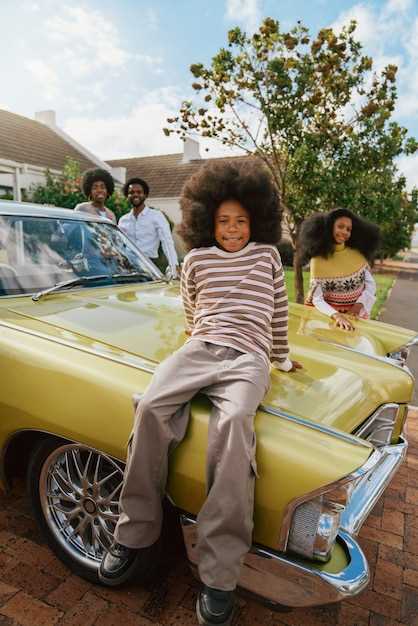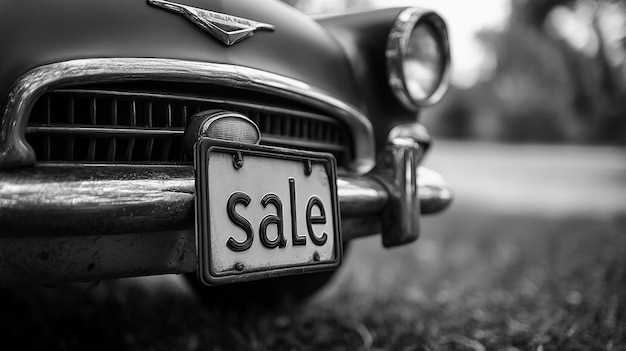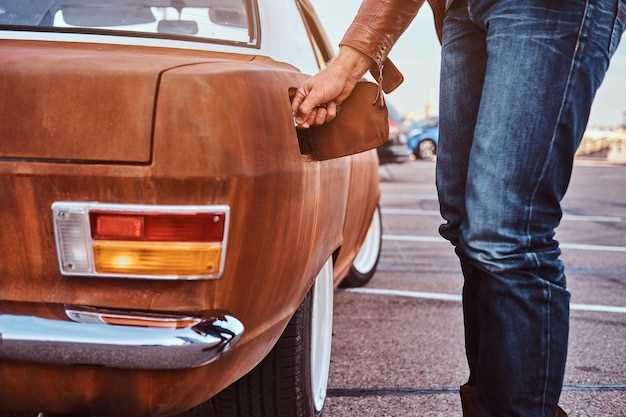Insurance Tips for Classic Car Collectors

Collecting classic cars is not just a hobby; it is a passion that requires a significant investment of both time and money. For collectors, ensuring the safety and value of their prized possessions is paramount. One critical aspect of this protection is selecting the right insurance coverage. This article aims to provide valuable tips for classic car collectors, ensuring that their investments are adequately safeguarded.
Understanding the specific needs of classic car collectors is essential when it comes to insurance. Standard auto policies often do not account for the unique characteristics and higher values of classic vehicles. Collectors must be vigilant and explore specialized coverage options designed specifically for classic cars. By following these essential insurance tips, collectors can make informed decisions that will protect their vehicles now and in the future.
Additionally, maintaining detailed documentation and appraisals of each car in their collection is crucial. This information not only assists in determining the appropriate coverage but also plays a vital role in expediting claims if an unexpected incident occurs. Let’s delve deeper into these smart insurance tips and equip classic car collectors with the knowledge they need to protect their valuable investments.
Choosing the Right Coverage for Your Classic Car
Selecting the appropriate insurance coverage for your classic car is essential to protect your investment and ensure peace of mind. Classic vehicles differ significantly from ordinary cars in terms of value, usage, and potential risks. Here are some valuable tips to help you choose the right coverage.
First, evaluate the actual value of your classic car. Unlike standard cars that depreciate over time, classic cars can appreciate in value. Consider obtaining a professional appraisal to determine the car’s market value accurately. This will help you choose the right coverage limits and prevent underinsurance.
Next, look for insurance companies that specialize in classic car coverage. Standard auto insurance policies may not adequately protect these unique vehicles. Insurers specializing in classic cars understand the nuances of collecting and offer tailored policies that often include agreed value coverage, which ensures you receive a predetermined amount if your car is totaled.
Consider the usage of your classic vehicle. If you only drive it occasionally, limited mileage policies can significantly reduce your premiums. Additionally, inquire if the insurer offers discounts for vehicle storage and security measures you have implemented, such as alarms or secure garages.
Review the policy details carefully. Look for comprehensive coverage that protects against theft, vandalism, and natural disasters. Liability coverage is crucial as well; ensure it meets the legal requirements of your state while providing enough protection in case of an accident.
Don’t forget about coverage for restoration and modifications. If you’ve invested in custom parts or modifications, ensure that these are also covered in the policy. Check for endorsements that protect modifications, as standard policies may not adequately cover these enhancements.
Finally, compare multiple quotes and review the terms carefully before making a decision. Each insurance provider has different offerings, so it’s recommended to assess the fine print, customer reviews, and overall reputation of the insurer. This diligence will ensure that you secure the best possible coverage for your classic car.
How to Determine the Proper Value for Insurance

Determining the proper value for insurance on classic cars is crucial for collectors aiming to protect their investment. The process involves several key steps that ensure accurate valuation and adequate coverage.
Firstly, it is essential to conduct a thorough appraisal. Hiring a qualified appraiser who specializes in classic cars can provide an accurate market value based on factors such as the car’s make, model, year, condition, and rarity. This expert opinion is vital as it reflects the current market trends and potential appreciation over time.
Next, collectors should consider recent sales data of similar vehicles. Researching auction results and private sales can help establish a benchmark for value. Online marketplaces and classic car shows can also provide insights into what collectors are currently willing to pay.
Additionally, documenting all features and modifications of the vehicle is important. Collectors should maintain detailed records, including service history, restoration work, and any unique components that may enhance the car’s value. This documentation serves not only in the valuation process but also when filing claims with insurance companies.
Another factor to consider is the insurance type being sought. Agreed value insurance policies are popular among classic car collectors, as they allow owners to agree upon a value with the insurer before insuring the vehicle. This can provide peace of mind, ensuring that, in the event of a total loss, the collector is compensated fairly.
Finally, it’s wise to review and update the car’s value regularly. Market conditions can change, and periodic evaluations can help ensure that coverage remains adequate. Engaging with insurance providers to discuss any changes in the collection can help collectors maintain appropriate levels of protection.
Finding Specialized Insurance Providers for Classic Vehicles

For collectors of classic cars, securing the right insurance coverage is crucial. Standard auto insurance policies often overlook the unique needs of vintage automobiles. Here are some tips for finding specialized insurance providers that cater specifically to classic vehicles:
- Research Providers: Look for insurance companies that specialize in classic or collector cars. These providers understand the intrinsic value and unique characteristics of vintage vehicles.
- Check Reviews: Investigate customer reviews and testimonials to gauge the provider’s reputation within the classic car community. Recommendations from fellow collectors can be invaluable.
- Evaluate Coverage Options: Ensure that the insurance policy covers agreed value, which guarantees a set amount in the event of a total loss, instead of market value, which can often be lower.
- Consider Mileage Restrictions: Many specialized providers offer lower premiums for policies that limit annual mileage. If you don’t plan to drive your classic car frequently, this can significantly reduce your costs.
- Inquire About Discounts: Ask about available discounts for collector associations, security features, or multiple policy bundles, which can help lower premiums.
- Review Policy Terms: Pay attention to specific terms and conditions, such as restoration coverage, spare parts coverage, and lay-up insurance for inactive periods.
- Consult with Agents: Engage with agents who specialize in classic car insurance. They can provide tailored advice and help you navigate the complexities of coverage options.
By following these tips, collectors can find specialized insurance providers that offer the best protection for their classic vehicles, ensuring peace of mind and financial security for their cherished investments.



